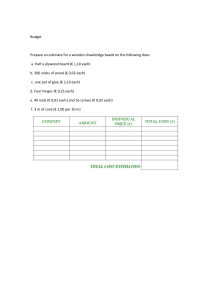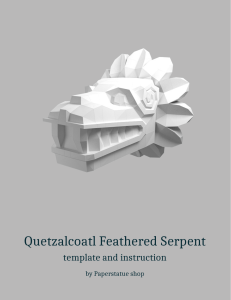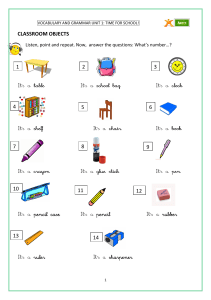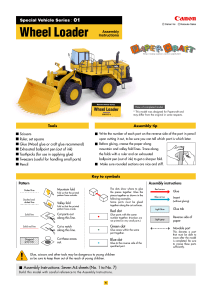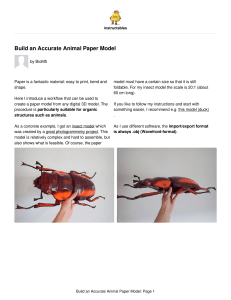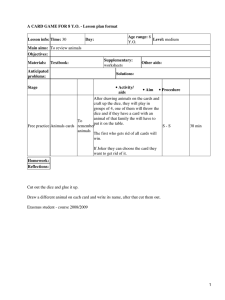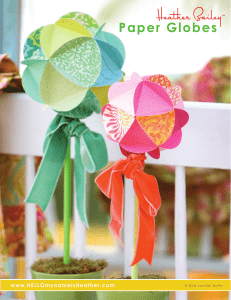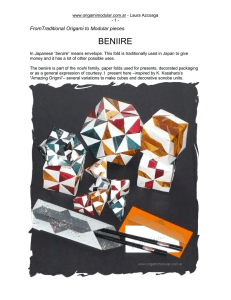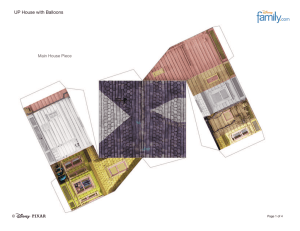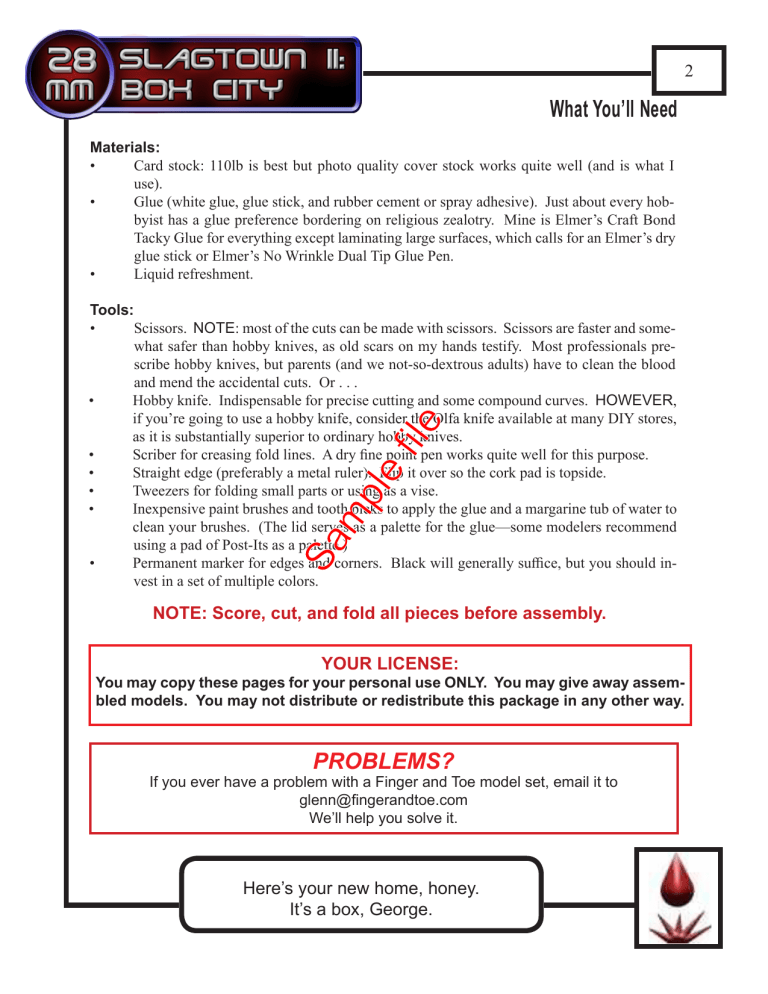
INSERT LOGO HERE 2 What You’ll Need Materials: • Card stock: 110lb is best but photo quality cover stock works quite well (and is what I use). • Glue (white glue, glue stick, and rubber cement or spray adhesive). Just about every hobbyist has a glue preference bordering on religious zealotry. Mine is Elmer’s Craft Bond Tacky Glue for everything except laminating large surfaces, which calls for an Elmer’s dry glue stick or Elmer’s No Wrinkle Dual Tip Glue Pen. • Liquid refreshment. Sa m ple file Tools: • Scissors. NOTE: most of the cuts can be made with scissors. Scissors are faster and somewhat safer than hobby knives, as old scars on my hands testify. Most professionals prescribe hobby knives, but parents (and we not-so-dextrous adults) have to clean the blood and mend the accidental cuts. Or . . . • Hobby knife. Indispensable for precise cutting and some compound curves. HOWEVER, if you’re going to use a hobby knife, consider the Olfa knife available at many DIY stores, as it is substantially superior to ordinary hobby knives. • Scriber for creasing fold lines. A dry fine point pen works quite well for this purpose. • Straight edge (preferably a metal ruler). Flip it over so the cork pad is topside. • Tweezers for folding small parts or using as a vise. • Inexpensive paint brushes and tooth picks to apply the glue and a margarine tub of water to clean your brushes. (The lid serves as a palette for the glue—some modelers recommend using a pad of Post-Its as a palette.) • Permanent marker for edges and corners. Black will generally suffice, but you should invest in a set of multiple colors. NOTE: Score, cut, and fold all pieces before assembly. YOUR LICENSE: You may copy these pages for your personal use ONLY. You may give away assembled models. You may not distribute or redistribute this package in any other way. PROBLEMS? If you ever have a problem with a Finger and Toe model set, email it to [email protected] We’ll help you solve it. Here’s your new home, honey. It’s a box, George. INSERT LOGO HERE 3 Sa m ple file REFERENCE VIEWS Here’s your new home, honey. It’s a box, George. INSERT LOGO HERE 1 4 ASSEMBLING THE BASIC CUBES Choose four wall segments, glue together into a hollow box. m ple file The cubes fold flat for storage. Sa With over forty panels and three roof textures, there are over six million combinations. For the top of a tower, leaving the vertical tabs off is an option unless you’re adding a rampart. For the roof, fold the roof sides down and glue. Glue a vertical tab to each corner. Stack cubes using the vertical tabs. See next page. 3 NOTE: for the very top of a stack of cubes, omit the vertical tabs for a smooth roof. Use a roof with vertical tabs for ramparts. Here’s your new home, honey. It’s a box, George. 2 INSERT LOGO HERE 5 ASSEMBLING THE BASIC CUBE, CONT’D 1 Sa m ple file Once you’ve glued the vertical tabs to the roof corners, simply slip the roof over the cube. Tap gently to make sure it’s properly seated. 2 Stack cubes to form tall buildings. The cube sides may bow in. Gently use your fingers to bow them slightly outward. Here’s your new home, honey. It’s a box, George. INSERT LOGO HERE 6 ASSEMBLING THE RAMPARTS NOTE: Use the optional tabs on the rampart walls to glue them to a rampart floor for a more permanent installation. Otherwise, trim away the optional tabs for a collapsible rampart. Fold each rampart wall over and glue (a dry glue is best for this). Sa m ple file 1 2 Glue the wall segments together. Insert inside the vertical tabs of a roof segment. NOTE: for the ramparts that are an open railing, do the cut outs between steps 1 and 2. Here’s your new home, honey. It’s a box, George. INSERT LOGO HERE 7 ASSEMBLING THE STAIRS Choose the appropriate landing sides, fold over and glue, then glue to the stairs. NOTE: The tab on the landing goes on the roof of a cube. 5 2 Decide on the orientation of the stairs to the cube and glue the landing to ONE of the stair sides, orienting as desired. ple Sa m Glue the landing and stair steps to the other stair side, beginning at the top and work down. Be sure the stairs are level. file 4 3 Fold the edges of the stair steps, then, beginning with the top stair, begin gluing to the same stair side you used for the landing. Use the panel lines as a guideline for gluing. Here’s your new home, honey. It’s a box, George. 1 Fold the stair sides over and glue (a dry glue like a glue stick works best). Completed stairs
